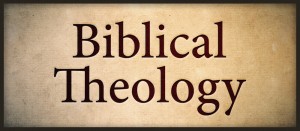
3. GENERALLY SPEAKING, THEOLOGY HAS SEVEN BRANCHES
A Revelation. The inspiration of the Bible.
1. This is not a reference to the Book of Revelation, but to the doctrine of revelation.
(a) Revelation comes from the Greek word meaning ‘unveiling’.
(b) It means to unveil what is hidden.
2. Revelation deals with the way God reveals Himself.
p 11 3. God has revealed himself in the Bible by the Holy Spirit.
(a) There is a sense in which revelation and Scripture are used interchangeably.
(b) We know the Bible is the Word of God by the ‘inner testimony of the Holy Spirit’ (Calvin).
4. The doctrine of the Trinity emerges under this heading, as well as providence.
B. Cosmology: the study of Creation.
1. From the Greek kosmos (world, or order of things) and logos (word).
2. Cosmology deals with the question: Did God create the universe and all in it or did it evolve or happen by chance?
3. Cosmology also deals with environmental issues.
C. Anthropology: the study of Man.
1. From the Greek anthropos (man) and logos (word).
2. Anthropology deals with the question: Was man created or did he evolve?
3. Anthropology also deals with issues such as:
(a) Is man fallen?
(b) Is man a dichotomy (e.g. body and soul) or a trichotomy (e.g. body, soul and spirit)?
(c) Human psychology.
D. Soteriology: the study of Salvation.
1. From the Greek soter (saviour) and logos (word).
2. The words salvation and redemption are used interchangeably.
3. Soteriology is the widest area that will be covered most widely in future studies, dealing with such subjects as atonement, justification, predestination, the law, faith, sanctification and assurance.
E. Pneumatology: the study of the Holy Spirit.
1. From the Greek pneuma (spirit) and logos (word).
2. This branch of theology overlaps with all of the above but is extended to subjects like the gifts, or anointings, of the Holy Spirit.
F. Ecclesiology: the study of the church.
1. From the Greek ecclesia (the called out, or church) and logos (word).
2. Do not confuse ecclesiological (the study of the church and church government) with ecclesiastical (referring to work in a denomination, as in ‘ecclesiastical appointment’).
3. This branch of theology also includes baptism, the Lord’s Supper and issues of church and state.
p 12 G. Eschatology: the study of the last things.
1. From the Greek eschatos (last things) and logos (word).
2. This branch of theology deals with subjects such as the Second Coming, unfulfilled prophecy, the final judgment, Heaven and Hell.
4. THEOLOGY AND ETHICS
A. Closely parallel with the study of theology is the study of ethics.
1. Ethics means moral principles or values.
2. Ethics deals partly with the relevance of theology.
B. Theological ethics covers such subjects as:
Marriage and family issues, economics, politics, the environment,sociology, medicine and psychology.
5. THEOLOGY AND SPIRITUALITY
A. Whereas the subject of spirituality overlaps with many of the above, for example, sanctification or the doctrine of the Holy Spirit, there is a need for particular emphasis on:
1. The place of prayer in the life of the church.
2. The place of prayer in the life of the believer.
3. Witnessing and soul-winning.
4. How to read the Bible.
5. The place of preaching.
6. Worship.
7. Revival.
B. ‘Learning theology on your knees’ is an aspect of our burden that will hopefully preserve us from an arid, sterile, irrelevant kind of emphasis that has not been helpful.
CONCLUSION
Studying theology in college is not an option open to all individuals. But through this book you have access to a range of teaching more usually available only in college. The benefits are twofold: we will be able to understand Scripture at a deeper level and our devotional times should be more productive.
The Holy Spirit will help in this task: he has promised to ‘remind you of everything’ you were taught (John 14:26). However, if we are empty-headed before we are Spirit-filled, we will be empty-headed afterwards. I believe Revival, another Great Awakening, is coming. Those who are equipped when it comes will be the most useful to God, the church and the world.
Kendall, R. T. (1996). Understanding Theology, Volume One (pp. 10–12). Ross-shire, Great Britain: Christian Focus.